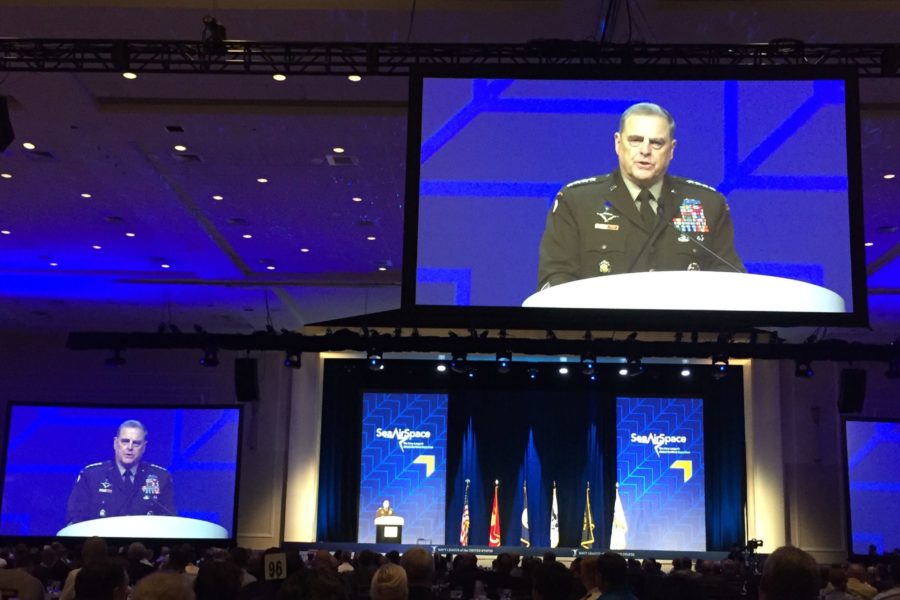The U.S. must adapt to the “changing character of war” or face “devastating consequences,” Chairman of the Joint Chiefs of Staff Army Gen. Mark A. Milley said Aug. 2.
“China will be a major agent of change to the current international order,” he told a full luncheon crowd at the Gaylord National Resort in Maryland.
“China is coming at us with increasing diplomatic capabilities, economic capabilities, and military capabilities to include a world-class navy surface capability, undersea capability, and naval air capability,” he said during the Navy League of the United States’ Sea-Air-Space Global Maritime Exposition.
Milley said at least 40 to 50 new technologies, including unmanned systems and artificial intelligence, are available to all countries in the world, so they must be mastered by the United States to prepare for war.
He cited Chief of Naval Operations Adm. Michael Gilday, who spoke earlier in the day, in estimating that one-third of U.S. Naval surface and subsurface systems would be unmanned by the 2030s. The percentage of pilotless aircraft would likely be higher.
“About 40 to 60 percent of future air forces, air wings, and squadrons will be robotic, pilotless,” the Chairman said. “They will be teamed up with manned aircraft, fourth- [and] fifth-generation.”
Milley said the technologies are not secret and are available right now.
Taking a historical view, he described 100-year cycles of peace interrupted by great-power wars and said the world was currently in the 76th year of the current international order, but “under intense, growing stress.”
Milley underscored that the U.S. military needs to “accelerate our change over the next 10 years” to keep up, but not in spending and equipment numbers.
The Pentagon is expected to get a flat defense budget this year, and despite an expected budget increase, the Navy will fall behind its goal of a Congressionally mandated 355 ships. The Navy now has 297 deployable ships, while China is believed to have 335 surface ships.
“It’s not about the sheer volume of weapons. It’s not about numbers. It’s not about the machines that you possess. It’s about having a different set of capabilities,” he said. “It isn’t about how much money we’re spending. It’s what we’re spending it on.”
Milley instead spoke about investments in capabilities such as precision munitions and artificial intelligence. Combined, the new technologies will be a determining factor in great-power competition.
“It’s likely to have a significant and perhaps a decisive edge at the beginning of the next war,” the chairman said. “Mastering this fundamental change in the character of war is going to be the most important thing we will do as a professional military in the next 10 years.”
